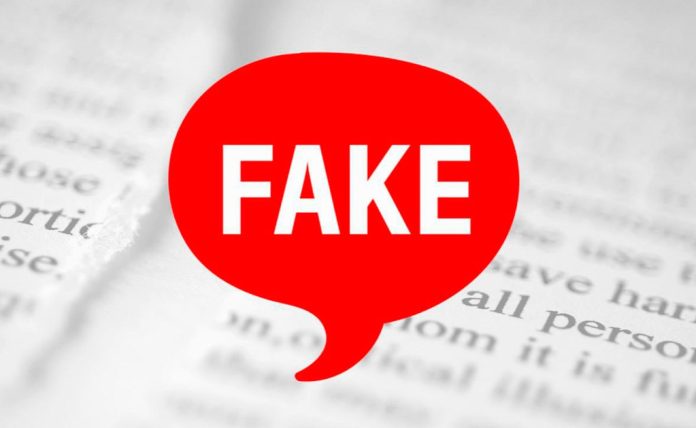Напередодні виборів у США, які відбудуться 5 листопада, інтернет і соціальні мережі заполонили неправдиві заяви про порушення під час голосування. BBC повідомила про рекордну кількість фейкових звинувачень, які, в основному, виходять від прихильників колишнього президента Дональда Трампа.
Сотні повідомлень про ймовірні порушення під час голосування поширюються окремими особами, а також незалежними групами та організаціями, пов’язаними з Республіканською партією, при цьому деякі заяви надходять і від демократів.
Потік звинувачень в Інтернеті став серйозним викликом для членів виборчих комісій, які намагаються розвінчати чутки та заспокоїти виборців напередодні дня голосування у вівторок. Майже всі ці повідомлення підтримують неправдиву заяву кампанії Трампа про його перемогу на виборах 2020 року та натяки, що його можуть знову позбавити перемоги 5 листопада.
На питання, чи визнає він результати виборів 2024 року, Дональд Трамп під час дебатів у вересні заявив, що визнає, якщо вибори будуть “чесними, законними та прозорими”. Опитування CNN/SSRS, оприлюднене в понеділок, показало, що 70% американців очікують, що Трамп не визнає результатів, якщо програє. Цього тижня він сам заявив про масові фальсифікації у ключовому коливальному штаті:
“Пенсильванія шахраює і попадається на цьому, причому в таких масштабах, які рідко зустрічаються раніше”, – написав Трамп у своїй соціальній мережі “Правда”. “ПОВІДОМТЕ ВЛАДУ ПРО ШАХРАЙСТВО. Правоохоронні органи повинні діяти, НЕГАЙНО!”
Ця заява з’явилася після того, як чиновники трьох округів Пенсильванії повідомили, що вони співпрацюють з місцевими правоохоронними органами, розслідуючи деякі заявки на реєстрацію виборців на предмет можливого шахрайства.
Хоча Трамп та його союзники підхопили ці заяви, головний виборчий чиновник штату, республіканець Ел Шмідт, закликав до обережності, попереджаючи виборців про небезпеку “напівправди” і дезінформації, що поширюється в соціальних мережах. “Це свідчить про те, що захисні механізми нашого процесу реєстрації виборців працюють”, — зазначив він.
BBC зафіксувало сотні звинувачень у фальсифікації виборів, що поширюються в Інтернеті, на платформах соціальних мереж, дошках оголошень і в чат-групах. Деякі з цих постів зібрали мільйони переглядів.
У цих повідомленнях стверджувалося, що негромадянам легко голосувати, поширювалися неправдиві відомості про машини для голосування та сіялася недовіра до процесу підрахунку бюлетенів.
Одне з відео, яке стверджувало, що в Грузії голосують новоприбулі гаїтяни, було викрито BBC як фальшивку через неправдиві адреси і використання стокових фото, що вказують на підробку. У п’ятницю американські спецслужби заявили, що відео було зняте “російськими агентами впливу”.
На іншій платформі, “Х”, користувач, який стверджував, що є канадцем, опублікував фото бюлетеня, заявивши:
“Вирішив переїхати через кордон і проголосувати”.
Це теж виявилося фейком, пов’язаним із скоординованими зусиллями на маргінальній дошці 4chan. Показаний бюлетень належав штату Флорида, де для голосування потрібне посвідчення особи, і який знаходиться приблизно в 20 годинах їзди від кордону з Канадою.
В окрузі Нортгемптон, штат Пенсильванія, на платформі X з’явилося відео, де чоловік несе контейнер з бюлетенями до будівлі суду, що викликало підозри у користувачів. З’ясувалося, що це був поштовий працівник, який доставляв бюлетені, надіслані поштою, але відео вже переглянули понад п’ять мільйонів разів.
Експерти висловлюють занепокоєння, що зростання дезінформації напередодні дня голосування може підірвати довіру громадян до результатів виборів або спровокувати загрози й акти насильства як перед виборами, так і після них.
Демократи готуються швидко відреагувати, щоб наповнити соціальні мережі та ефір закликами до спокою і терпіння під час підрахунку голосів, якщо Дональд Трамп знову спробує передчасно оголосити про свою перемогу на виборах, як це було у 2020 році.


